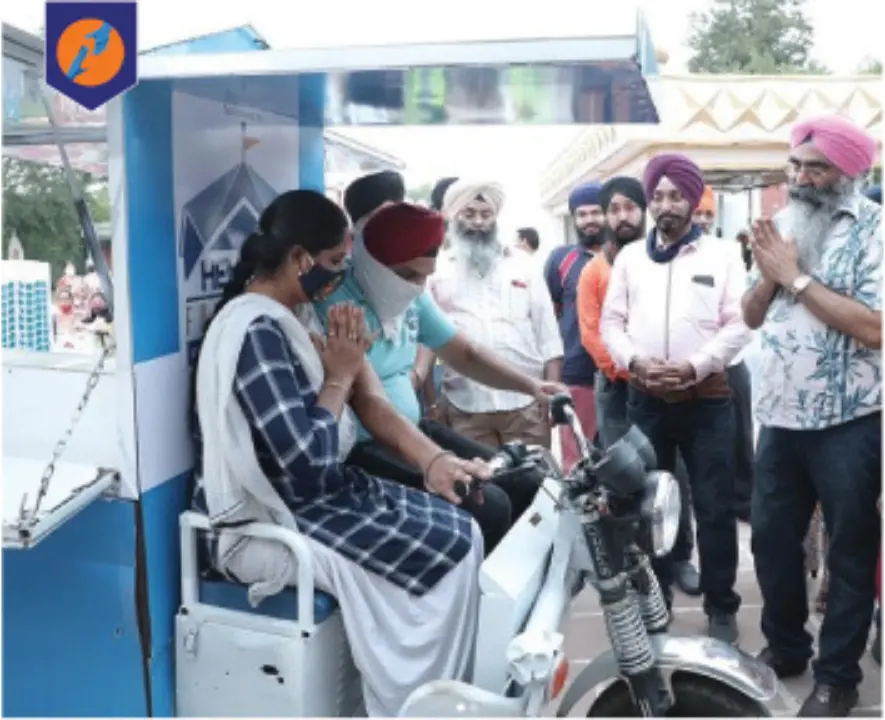Employment Generation: A Beacon of Hope in Challenging Times

While the country battled with the pandemic, 1 crore people were left unemployed, rendering families wage-less, resulting in populations going hungry and children losing educational opportunities. The sudden loss of income disrupted the lives of millions, pushing them into deeper poverty and uncertainty. In response to this crisis, the Foundation has stepped in with targeted initiatives aimed at empowering low-income groups and restoring their livelihoods. By providing e-Rickshaws, food trucks, and sewing machines for tailors—especially for women who had to sell their source of livelihood for financial gains—the Foundation is not only addressing immediate economic needs but also fostering long-term sustainability.
These efforts are particularly crucial for women who often bear the brunt of economic hardships. The provision of sewing machines enables them to restart their tailoring businesses, allowing for financial independence and stability. Similarly, the distribution of e-Rickshaws and food trucks opens new avenues for self-employment, ensuring that families can once again earn a stable income. These measures not only alleviate the immediate economic distress but also empower individuals to build resilient livelihoods, contributing to broader economic recovery and social stability.
This employment generation initiative highlights the importance of inclusive economic support systems in times of crisis. By focusing on sustainable solutions that cater to the needs of diverse groups, the Foundation’s approach underscores the value of community resilience and self-reliance. As we look towards recovery and rebuilding, such initiatives serve as a beacon of hope, demonstrating that targeted, compassionate support can drive meaningful change and restore dignity and hope to those most affected by the pandemic.
